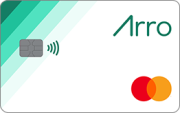The content on this page is accurate as of the posting date; however, some of the offers mentioned may have expired.
Before you hand over your credit card to your teen to take with them to the mall or allow them to apply for a credit card in their very own name, it would be best for you to impart a bit of knowledge onto them regarding how credit works.
Most importantly, you need to make sure your child understands that every single time they charge something to a credit card they are borrowing money from a bank to pay for that item. Without this comprehension it is easy for people get into deep debt with plastic. Tell your teen that buying things with a credit card is taking out a loan that must be repaid. Therefore, they need to keep this in mind when making purchases so that they don’t overspend. It is essential to set credit card spending rules for your teen. Encourage your children to develop the habit of not putting any purchases onto a credit card unless they are certain they will have the money to pay them off at month’s end.
Explain to your teenager that credit cards are not free. Banks charge cardholders money to carry that card in their wallet in the form of interest and fees. Banks are in business to make money and are not interested in making sure that your teen does not sink into insurmountable debt so you have to make sure that your children can look after themselves financially. Banks want to encourage teens to spend using credit cards in the hopes of turning a profit. A good way to ease your teen into the world of credit is to allow them access to only one card and make it clear that it is only to be used in the case of an emergency. Set up a checking account for your teen that has a debit card attached to it and allow them to use that to pay for purchases for a while until they get used to the concept that every swipe with plastic costs real money.
Get your teen involved with credit card paperwork. Impress upon them the importance of reading all the fine print in a credit card agreement. Point out what they need to pay attention to such as the card’s APR, whether or not it carries an annual fee, what is the fee for not making a payment on time and what other fees there are, if any, for things like transferring balances and paying bills online.
Teens must learn that it is essential to consider their credit card bills as a financial priority to make certain that lenders receive payments on time. Because credit card companies report all cardholder behavior to credit reporting agencies, what your teen does with a credit card now will leave a lasting impact upon their credit history. Explain to your child that being responsible with credit now will determine how much credit they are able to access in the future. It will also affect their ability to borrow money to buy a car, rent an apartment and, in some cases, get hired for a job.
Finally, don’t underestimate the importance of teaching your teen that money cannot buy happiness, not matter how big the credit card limit. While material items may bring a sense of immediate satisfaction, that feeling will fade and leave them in wont of a sense of deeper personal fulfillment. Make sure your child understands that using a credit card for retail therapy is never a good option.






